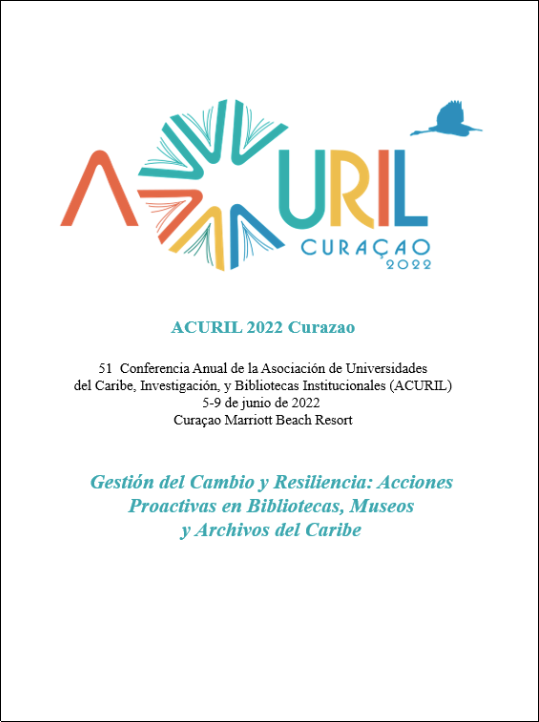Abstract
Literature tells us that resilience is an ability to recover from, or adjust easily to misfortune or change. History is replete with cases of the resilience of humans, organizations, societies, and systems. If we investigate we might find that we survive based on a combination of critical elements that are crucial to our ability to be resilient and to bounce back from disruption. Libraries and other information management organizations are not likely to have a comprehensive risk management or disaster plan, unless they have been through a disaster before, or if they are located in a high-risk environment (e.g., sited on a flood plain or in an area prone to tornadoes, cyclones or hurricanes). For academic libraries to recover quickly and be resilient in the face of disaster it is important that there be plans and policies designed to guide risk reduction, response, and recovery.
The University of Guyana Library (UGL) has endured some major floods at its current Turkeyen campus location, which have resulted in significant damages, and change in space allocations. In 2005 the University of Guyana Library experienced its largest flooding disaster at its Turkeyen Campus. Not only did the library lose a number of books, journals, correspondence, catalogues, computer hardware and software, and furniture, but staff members were also displaced for several weeks following the flood. This disruption affected the library’s ability to cater to its clients effectively in terms of the provision of physical spaces and access to resources. While the 2005 floods were the worst in the history of the UGL, the library continues to face flooding and its effects in various degrees annually. With climate change and unpredictable weather patterns it is critical that the UGL not only be in a state of readiness to respond to future disasters, but also have plans for the avoidance of such disasters. This research will document the effects of and the responses to the annual flooding that the UGL has experienced. It will also outline a proposal for the UGL as it relates to planning for flood and its effects, securing assets to avoid flood damage, and maintaining the library’s services and access to resources during flooding.

This work is licensed under a Creative Commons Attribution-NonCommercial-NoDerivatives 4.0 International License.
Copyright (c) 2022 Simone Bernard, Rosemond Carroll

